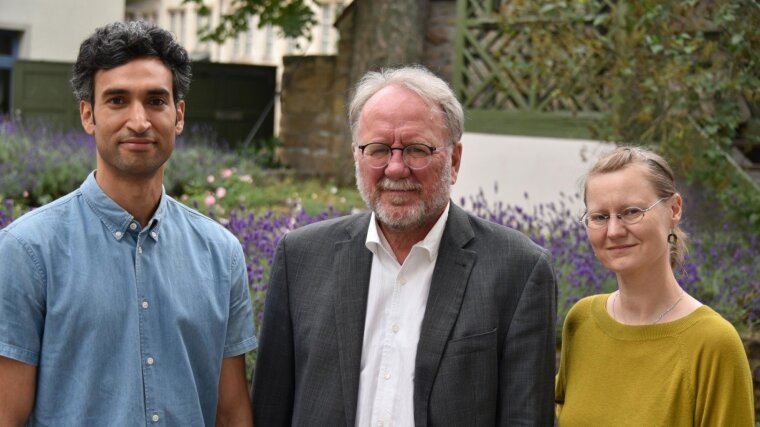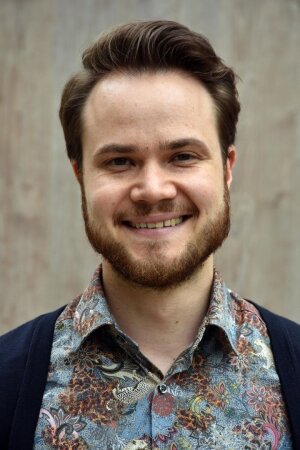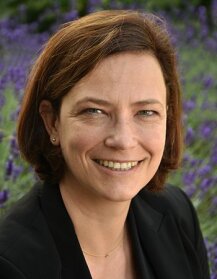
Published: | By: Stephan Laudien
Source article

The winners of the 2021 teaching awards at Friedrich Schiller University Jena have been chosen, including winners of special prizes for excellent teaching in spite of the challenges of the pandemic.
Dr Nils Töpfer of the Faculty of Social and Behavioural Sciences has won the award for the best course design with the seminar entitled “On the scientific foundation of psychotherapy: a somewhat different introduction to effectiveness and process research”. The prize in the priority topic area “Dealing with diversity” goes to Prof. Michael Wermke, Dr Sophie Seher and Fahed Al’Janabi for the seminar “Cultural and religious sensitivity in work with parents”. The teaching awards are endowed with 2,500 euros each and they will be presented on 23 November 2021 at the “Dies Legendi” (Day of Teaching).
The expert committee of the Academy for Teaching Development had no easy task in selecting the winners.
All nominations are of excellent quality and represent examples of very good university teaching as well as the strong commitment of the teaching staff.
Prof. Kim Siebenhüner
Vice-President for Learning and Teaching at Friedrich Schiller University Jena
This year, the jury of the Academy for Teaching Development presented one-off “LiP Awards” for “teaching in a time of pandemic”. From a total of 39 applications, one course per faculty was honoured with the award. “All teachers who receive a LiP Award are representative of many other teachers who, under the conditions of the pandemic, successfully converted their teaching to an online format at short notice or found other convincing solutions for delivering their courses,” says Prof. Siebenhüner.
Putting the “gold standards” to the test together
With his “somewhat different introduction to effectiveness and process research”, Dr Nils Töpfer wishes to enable his students to take individual responsibility for developing a well-founded personal position. “The seminar provides an atmosphere that leaves plenty of room for critical discussion,” says the psychologist. In the process, the “gold standards” of psychoanalysis are repeatedly subjected to critical examination. Töpfer developed the seminar primarily for students in the 5th and 6th semesters. In terms of content, the aim is to examine research on psychoanalysis as an example of evaluation research. “We look together at what concepts exist in psychoanalysis, how they are formed and what use they are,” says Töpfer. The metaphor of the horse race has proven to be unhelpful, as it is not a matter of which method is the best. The aim is rather to work out which characteristics are common to all therapy methods. One important component is the relationship between therapist and patient. In research, the focus is mostly on a change in symptoms, while questions about general satisfaction with life, personality development or dealing with conflicts play a subordinate role. “The students should form their own opinions, because there is no perfect solution,” says Nils Töpfer. The 34-year-old has been working in Jena as a research associate for eight years. Töpfer studied in Jena and at the University of Cambridge. He developed the seminar on psychoanalysis based on the ideas he felt were lacking in his own studies, in particular critical viewpoints on his own subject. For him, the 2021 teaching award is confirmation that he has chosen the right path.
Integration means a rapprochement from both sides
“If parents have no self-confidence, this is passed on to their children,” says Prof. Michael Wermke. The professor of religion has been recognised, together with Dr Sophie Seher and Fahed Al’Janabi, for the seminar “Cultural and religious sensitivity in work with parents”.
The seminar was developed in cooperation with the Youth and Education Department of the City of Jena and the project “Uns Miteinander Stärken” (“Giving each other strength”), which is funded by the Thuringian Ministry for Migration, Justice and Consumer Protection. The focus is on a discussion group with Arabic-speaking mothers and students in the Lobeda-East district of Jena. The talks are moderated together with school social workers. The exciting aspect of the discussions is the encounter between various social, religious and cultural influences, which should encourage all participants to take a critical look at their own personal ideas of normality, says Dr Sophie Seher.
For example, the women, most of whom come from Syria, consider that it is the task of the community to bring up children. The aim is to teach children and young people mutual support and responsibility as part of this community. This concept does not correspond to the idea of the German education system, which is strongly orientated towards autonomy. Fahed Al’Janabi adds that the women’s self-image as educators is to some extent questioned in the new environment, for example when their children have to act as mediators between home and school. As Prof. Wermke explains, the mothers and students in the workshops often work with case studies that arise from the mothers’ everyday lives as educators.
“In this way, we try to strengthen the mothers’ educational competences and to consider our values and influences together.” One case study relates to the style of dress adopted by girls: going to school in a crop top – yes or no? While the students accept such a style of dress without problems, it is a challenge for the Muslim women, not least because of the reactions within their community. “Such questions are very much about expectations of normality, which is very stimulating to discuss for everyone involved,” says Fahed Al’Janabi.
A mutual understanding of the different religious and cultural attitudes is an important step on the way to integration as mutual rapprochement. “The seminar offers students the opportunity to acquire methods and insights for culturally and religiously sensitive work with parents through personal encounters with immigrant mothers,” explains Prof. Wermke. The seminar will be offered again in the 2021/22 winter semester.
Recognition for online courses in a time of pandemic
LiP Awards for teaching in a time of pandemic go to
- Dr Susanne Kochs (Faculty of Theology) for the language course “Greek 1”
- assistant professor Dr Anika Klafki (Faculty of Law) for the examination revision course “Public Law”
- Prof. Armin Scholl (Faculty of Economics and Business Administration) for a number of lectures
- Dr Britta Hövelbrinks (Faculty of Arts) for the seminar “Diagnostic language tests in German as a second language”
- Dr Julia Dietrich (Faculty of Social and Behavioural Sciences) for the lecture “Learning, development and socialisation: an introduction”
- Benjamin Hinrichs (Faculty of Mathematics and Computer Science) for the lecture “Analysis 2”
- Prof. Gerhard G. Paulus (Faculty of Physics and Astronomy) for the lecture “Experimental Physics 2“
- Prof. Alexander Brenning (Faculty of Chemistry and Earth Sciences) for a number of courses on geoinformatics
- Dr Maren Godmann and associate professor (PD) Dr Christian Kosan (Faculty of Biological Sciences) for the biochemistry practical course for biochemists
- associate professor (PD) Dr Alexander Pfeil (Faculty of Medicine) for the practical course “Rheumatology”.
The teaching awards of the University of Jena and the LiP Awards will be presented at this year’s “Dies Legendi”, the “Day of Teaching”, on 23 November.
